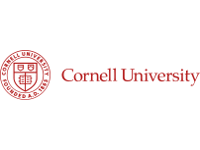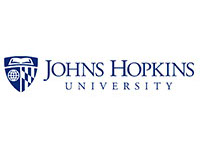
2024 Fall MRS Boston – December 6th 8:30 am – 5:00 pm
The purpose of this forum is to facilitate a discussion among members members of of the materials research community of ways in which automation and machine learning can be used in conjunction with advances in bulk and thin-film single-crystal growth methods to accelerate the discovery of inorganic materials.
The tools of data science have been transformed over the past decade by the rise of practical machine learning techniques, colloquialized as “AI/ML” methods, and have the potential to be transformative across virtually all areas of academic and industrial research. Within inorganic materials discovery, however, the impact to date of data science has been muted. The reason is simple: the rate of model inferences and theoretical predictions of superior materials (more sustainable, higher performance, enhanced functionality) has greatly exceeded the actual creation, let alone deployment, of predicted structures by orders or magnitude for well over a decade.
Agenda
(Linked presentation files)
8:30 am
Welcome
30 minutes
Presentation
Q&A
9:00 am
Current User Facility Frontiers
1 hour
Presentation
Q&A
9:00 am
Success Stories from the NSF Quantum Foundry
Stephen Wilson, University of California at Santa Barbara
13 minutes
2 minutes
9:15 am
Success Stories from the Center for Nanophase Materials Sciences (CNMS)
Christopher Rouleau, Oak Ridge National Laboratory
13 minutes
2 minutes
10:00 am
Coffee Break
Refreshments provided
30 minutes
10:30 am
Opportunities for Artificial Intelligence and Machine Learning
1 hour and 30 minutes
Presentation
Q&A
10:30 am
Successes and Vision for Practical Materials Discovery
Joseph Montoya, Toyota Research Institute
13 minutes
2 minutes
11:15 am
Vision on How AI can Accelerate Materials Synthesis
Jason Hattrick-Simpers, University of Toronto
13 minutes
2 minutes
11:45 am
Moderated Discussion
Tyrel McQueen, Johns Hopkins University
12:05 pm
Lunch
Hosted Lunch - Back Bay D Ballroom
55 minutes
1:00 pm
Software for Artificial Intelligence
1 hour and 30 minutes
Presentation
Q&A
1:00 pm
Accelerated Science through Autonomous Experimentation
Benji Maruyama, Air Force Research Laboratory
15 minutes
5 minutes
1:20 pm
Software for Accelerating Synthesis and Materials Discovery
Chris Stiles, Johns Hopkins University
15 minutes
5 minutes
1:40 pm
How AI Can Accelerate Materials Discovery
Eun-Ah Kim, Cornell University
15 minutes
5 minutes
2:30 pm
Coffee Break
Refreshments Provided
30 minutes
3:00 pm
Hardware for Accelerated Synthesis
2 hours
Presentation
Q&A
3:20 pm
Insights into Synthesis with Real-time Synchrotron Techniques
Dillon Fong, Argonne National Laboratory
15 minutes
5minutes
4:00 pm
How Substrates and EBSD Can Accelerate Materials Synthesis
Paul Salvador, Carnegie Mellon University
15 minutes
5 minutes







